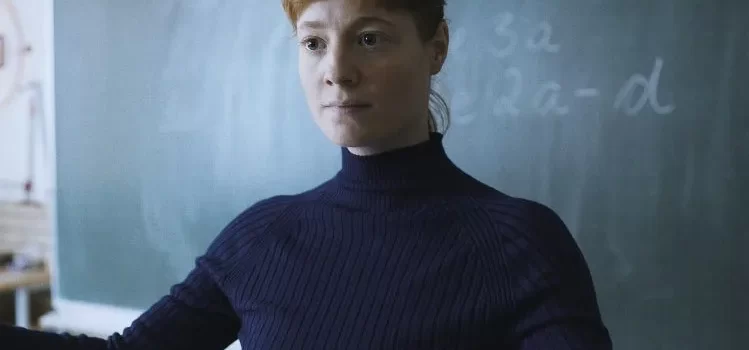By Alex McPherson
A taut, stressful, and grimly compelling watch with lots on its mind, director Ilker Çatak’s “The Teachers’ Lounge” resonates long after the credits roll as an allegory for society’s messy, complicated realities.
Çatak’s film follows Carla (Leonie Benesch), aka Ms. Nowak, a newly hired sixth grade math and gym teacher at a German middle school who cares deeply for her students’ education and well-being. She’s patient, organized, empathetic, yet naive — confident in her abilities as an instructor while largely ignorant of the paranoia and distrust bubbling within the school’s stark walls.
Carla tries her best to avoid gossip among the faculty, which currently involves finding out who’s behind a series of petty thefts in the school. Carla’s antagonistic peers (who view Carla as an outsider, she emigrated from Poland) suspect the students. She’s summoned to a room where she, some other teachers, and the principal (Anne-Kathrin Gummich) pressure a couple of sixth-graders from Carla’s classroom into accusing a Muslim classmate as being the perpetrator.
After school officials search wallets in Carla’s classroom, the student is brought in for questioning, and the whole situation reeks of racism. Upset and seeking justice for her class, Carla takes matters into her own hands, setting up a hidden camera in the titular teachers’ lounge to clear up the situation once and for all. Or so she hopes.
Although Carla does, allegedly, locate the culprit, an administrative colleague, her discovery sets off a chain reaction of chaos involving rumors, vengeance, rebellion, and shredding of the already-uneasy bond between students’ families and school authority. Carla, thrown into the center, grapples with her own notions of right vs. wrong and which side to take; her good intentions yielding regrettable outcomes for everyone involved and innocents caught in the crossfire.
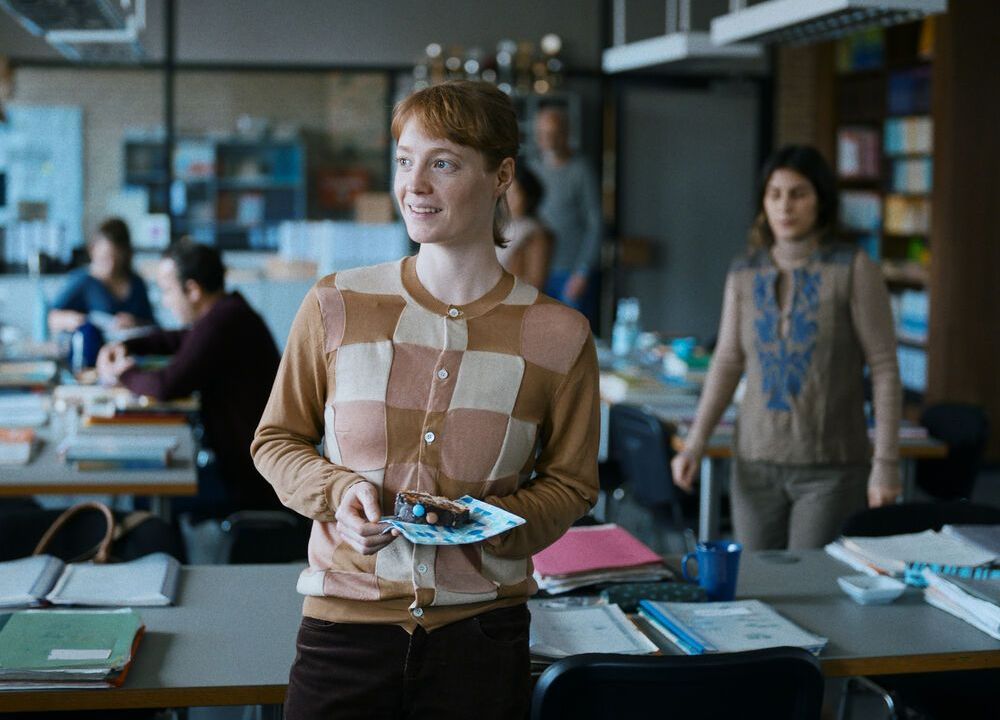
“The Teachers’ Lounge,” then, is quite a harrowing, immersive, and grueling watch, with few optimistic things to say about the human condition. Çatak keeps the tension high from beginning to end, refusing to let viewers catch their breaths as we observe one calamity occur after another — a microcosm of pluralistic society imploding on itself.
Benesch is magnificent, rendering Carla as a multifaceted character that’s at once admirable and frustratingly idealistic. We see Carla’s confidence radiate in the classroom, almost conducting the class like an orchestra in their morning greeting. She then transitions into quiet rage at her colleagues, shifts into determination as she acts on her gut feelings for justice, and crumbles before our eyes as the environment she cares so passionately about seemingly turns against her.
Benesch lends Carla a sense of authentic determination through subtle expressions and gradually evolving body language; Carla refuses to surrender her fight to do “the right thing,” pulled between her ideals and a dangerous atmosphere that she’s unwittingly cranked to a boiling point.
Indeed, Carla’s good intentions only exacerbate pre-existing tensions. Suspicions of prejudice, surveillance, and lack of transparency flood classrooms, parents’ group chats, and the teachers’ lounge itself. Both the school authority and the alleged culprit, struggle for control of the narrative, as does a bright, quiet student in Carla’s class named Oskar (an excellent Leonard Stettnisch), who, driven by love and loyalty, fights for what he believes in — rallying some classmates while alienating others.
Carla tries to restore balance, almost always handicapped by “ethics” that restrict transparency and forces beyond her control and the school walls that can’t be alleviated, no matter how stubbornly (and misguidedly, especially late in the film) she tries to manage them.
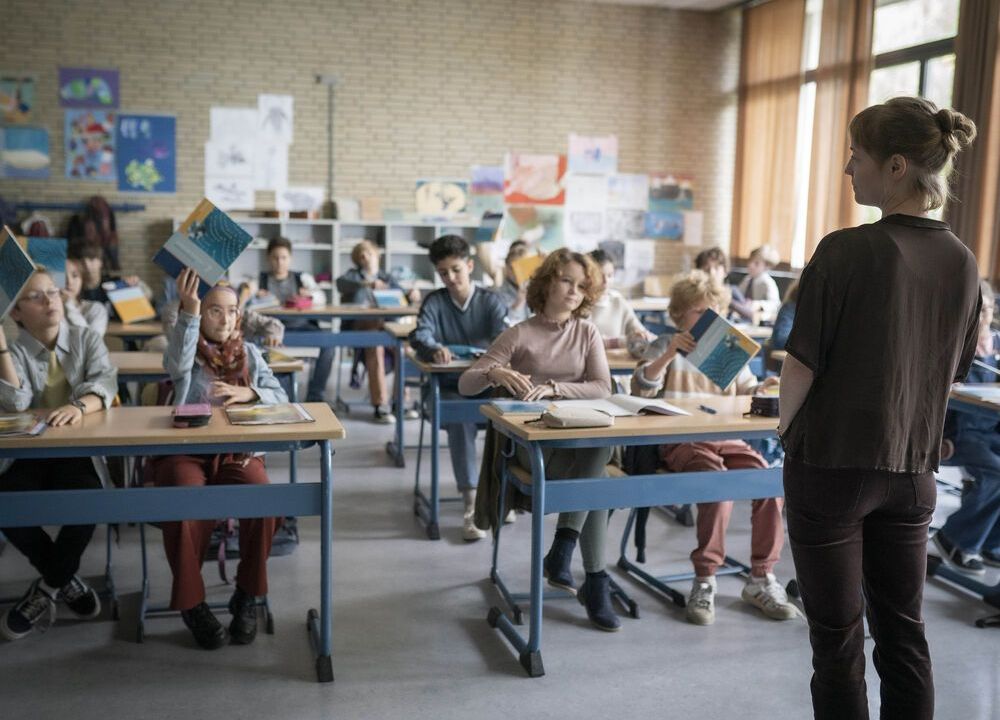
It’s all rather agonizing to watch unfold, like a train wreck we’re powerless to stop. “The Teachers’ Lounge” almost never leaves the school’s grounds — trapping us in this miniature society torn between different perspectives and beliefs, while reflecting a situation Carla is powerless to extricate herself from.
Cinematographer Judith Kaufmann’s camera sticks close to Carla the whole runtime, never leaving her perspective. This in-your-face approach not only provides a suffocating, relentless quality to the film over its 98-minute runtime, but it also feeds into Carla’s burgeoning self-doubt and impulsive actions. Çatak helps viewers feel connected to and empathetic with Carla, observing her as she (sometimes stubbornly) follows morals, while never letting us forget that ambiguity abounds and everyone has different views on the ordeal.
We observe cause-and-effect in motion from beginning to end, each well-intentioned action precipitating further conflict and confusion, no light at the end of the tunnel to be found. Marvin Miller’s throbbing score, too, accompanies the mayhem perfectly, sometimes mirroring the sensation of breathing, growing more labored and jagged as the action escalates.
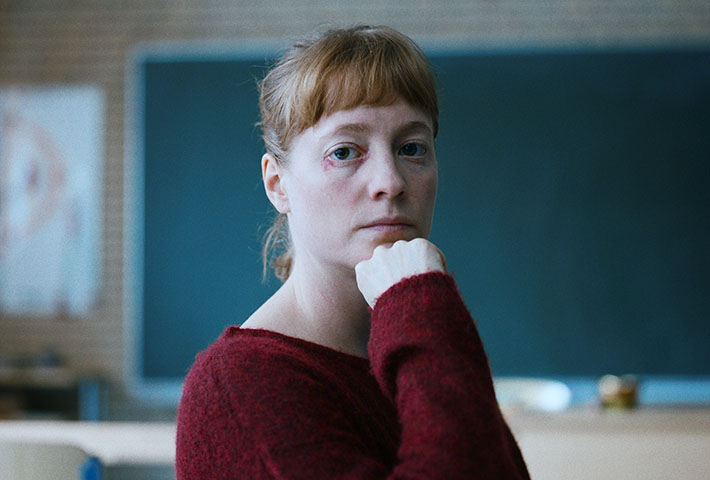
The film’s more stylistic flourishes (thematically resonant yet calling attention to themselves in overly “cinematic” fashion) don’t hit nearly as hard as the moment-to-moment drama, but are minor distractions in an otherwise airtight, wholly involving watch. Ultimately, Çatak’s film reaches outside its immediate setting to comment on the world at large. Unpleasant though it might be, it’s difficult to look away.
“The Teachers’ Lounge” is a 2023 drama from Germany, in English subtitles, directed by Ilker Catak and starring Leonie Benesch, Leonard Stettnisch, and Anne-Kathrin Gummich. It is the German entry as Best International Feature at this year’s Academy Awards. It is Rated PG-13 for strong language and its runtime is 1 hour, 38 minutes. It opened in local theatres on Feb. 9.
Alex’s Grade: A-.
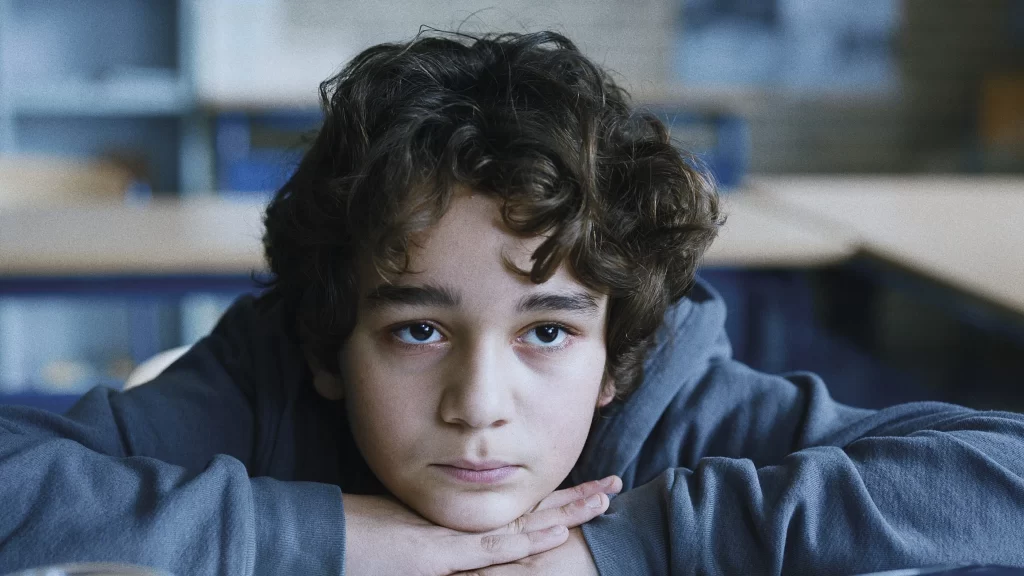
Alex McPherson is an unabashed pop culture nerd and a member of the St. Louis Film Critics Association.

